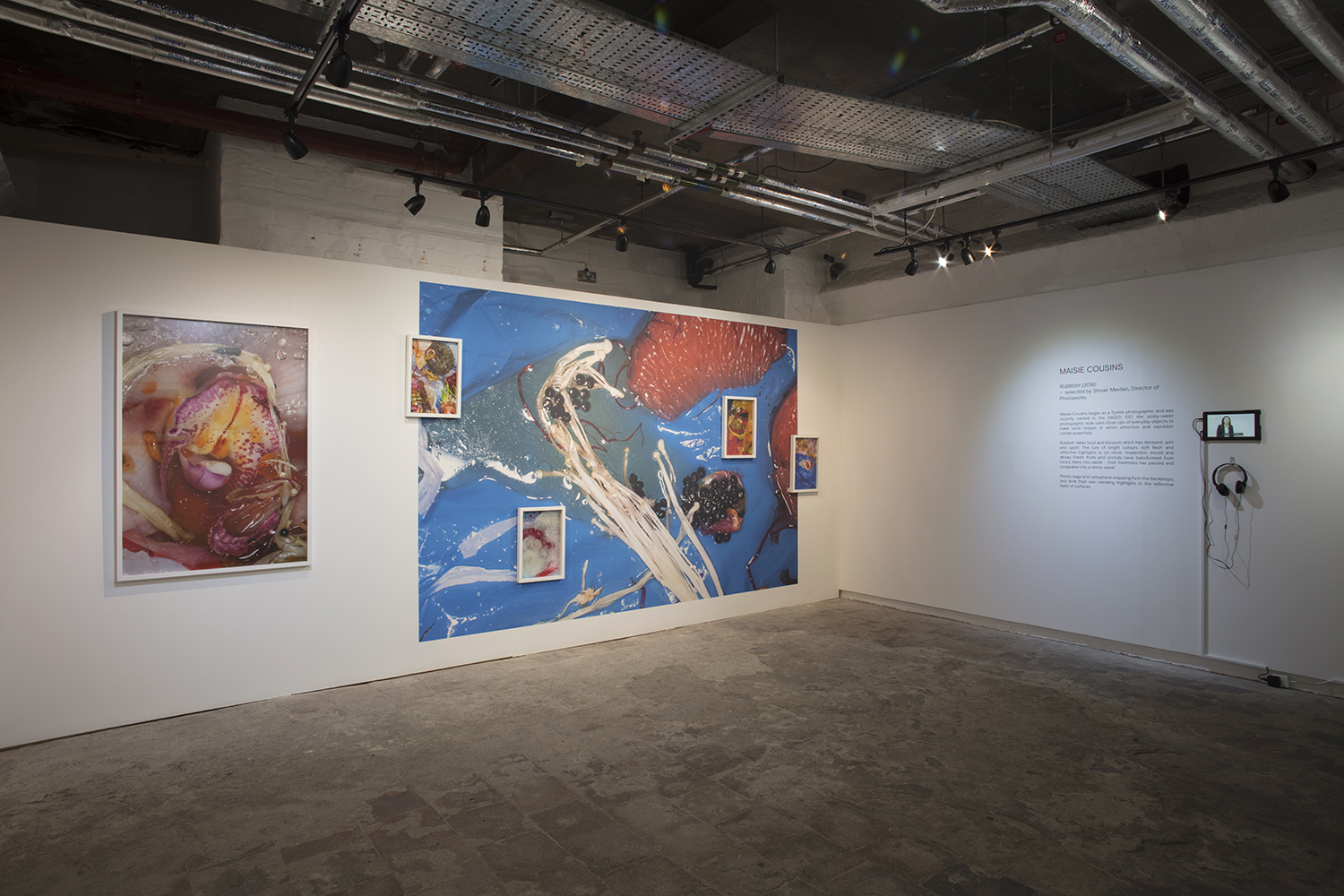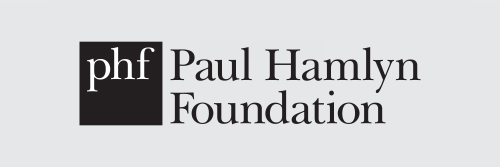
Natalie Abbott — Reflections on Rubbish
“A thing is not beautiful because it is beautiful … it is beautiful because one likes it”
A quote taken from Bruno Munari’s Design as Art, which I read during volunteering. This book was really interesting in terms of viewing and understanding design, despite it originally being published in 1966. The quote resonated with me as it really highlighted my relationship a specific artist’s work.
The subject matter of rotting organic materials paired with plastics in Maisie Cousins’ Rubbish is an aesthetic I never thought could be made beautiful, yet somehow Cousins takes these everyday, mundane items and creates disgusting but delightful imagery.
When I was first introduced to Rubbish my emotions were undecided; I liked it, but I hated it at the same time. The colours are so vibrant and crisp but the subject matter is so dirty and unclean. Only over time has it became more clear that I do, in fact, adore this work.
I almost find a level of comfort and relaxation within the work – its all so soft and smooth, it has a very relatable quality. The contents are normal; passion fruit, grapefruit, orchid, mushrooms, plastic bags, I know these items, I can relate to the food waste, the relatability to the work gives it a home-like aura. However, what I truly love about the work is that Cousins has transformed the subject matter, not just in terms of styling, but how you assess what you are viewing. It can take some time trying to figure out exactly what it is you are looking at.
The image with petals with the blue bag and the flies was the most notable experience where I was taken aback at what I was looking at. I genuinely thought it was just ham, some flowers, sriracha, flies and a bag – almost like it came from one of the dodgiest takeaways ever. Similarly, the orchid often takes people aback as they seeing something very anatomical, many think it’s a stomach or a vagina – its very human looking due to the shapes and colours. However, once it is established that it is, in fact, an orchid, their minds are at ease and they can enjoy the image for all it’s sticky and sweet glory.
One of my favourite images is the mouldy raspberry. Due to the way the mould has developed, the raspberry looks opulent – the spores look like diamonds, whilst the fluffy mould creates an illusion of a high-end fur coat. This close-up and stylised image of a mouldy raspberry has completely transformed it from something I would see in my fridge and throw away in disgust to something I see in the gallery space, staring at it in awe of how something so ugly can be so beautiful, and that is my favourite element to Maisie Cousins’ practice. She gives used and off produce a second life, documenting the process of decay in a hyper-realistic manner.
Rubbish has such a big impact on the viewer – I had many conversations with visitors about the work, most, if not all, were struggling to come to a verdict on whether they liked the work. One of the most memorable interactions was with a young gentleman, who very audibly gasped and stepped back. My inital reaction was that he had visited specifically to view this work, however, when I spoke to him, that was not the case. I very distinctly remember him saying, “it’s beautiful, but I just feel physically repulsed”.
Rubbish is not a marmite project, there is no definitely love or hate, it is not binary. With this work we see the line between love and hate blur; it becomes entangled, intertwined, almost inseparable.
The love and appreciation of the colours or the technical talent clashes with the hatred of the feelings it causes, the aesthetic, the fleshy tones or whatever it may be. Both are in partnership. For many one does not exist without the other.
Personally, what I love about the work is the colour, the vibrancy, the intimate scale of each shot. What I have grown to love is how it makes me feel, what was once repulsion and disgust is now peace and wonder. However, what I hate is that the images are so vivid that I can essentially feel and smell the work.
It feels like that specific stickiness when you have hard boiled sweets that have been left in the back of the cupboard for months, if not years, the type of sticky that feels like it will never, ever go. The smell is a recollection of every student flat I lived in, that warm bin smell of rotting and decaying food waste that has been left for weeks because everyone is too “busy”, in other words lazy, to take the bins out.
It is almost nostalgic, the feeling takes me back to childhood and eating sweets that were long forgotten, whilst the smell takes me back to my four years of university life. That is when I know that art has had a truly profound effect on me, when I can almost be transported through time and experience the art in an almost mental 4D state. Not only am I seeing this work, I can feel it, I can taste it, I can smell it – it is not just a picture on the wall to me, it is immersive.
Another quote from Design as Art that I feel relates to Maisie Cousins is;
“We need to give the spectator more room to penetrate into the work itself”
How we view this work is almost like a performance. Walking into the room, the viewer is greeted with the large white, red and blue decal, which is a lot to take in up close. So they linger by the doorway, then slowly edging closer to scrutinise the details. Moving closer, steps are taken towards the smaller frames to inspect what it is, peering into the chaotic, vibrant mess. The layout, scale and composition allows the viewer to truly get in and explore the imagery. It discourages the viewer to look at it once, say “ok cool, I totally get it” and then move on. It is enticing, intriguing, it demands attention, it demands scrutiny.
In conclusion, I found an interesting quote from the nominator, Shoair Mavilan, that Maisie Cousins photographs and documents “things we usually hide”. In a world of consumerism, as a society, we shy away from waste and the discarded items. Rubbish documents, highlights, and most spectacularly, glamorises the ugly side to consumerism and waste culture, all whilst making us view the work with lust and disgust.

